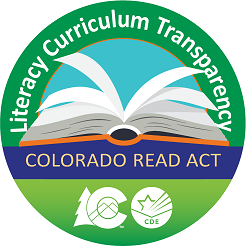Curriculum
CURRICULUM OVERVIEW
North Star Academy delivers a rigorous educational program driven by high standards and a research-based curriculum.
The elementary school program at NSA provides K-5 students with an academic approach in three key areas:
A deep knowledge in core discipline areas (reading, writing, math, science, and social studies) through the use of E. D. Hirsch’s Core Knowledge curriculum, resulting in high academic achievement and growth.
A focus on character education and service learning enabling students to reach beyond the classroom into their communities and become responsible and respectful members of society.
Intensive daily foreign language instruction (Spanish) that goes beyond the standard foreign language program, integrating Spanish across the curriculum and encouraging an understanding and appreciation of various cultures and traditions, producing proficient Spanish language speakers.
Music, art, physical education and technology are also essential components of NSA’s educational program.
Differentiated Instruction
NSA believes that students develop an understanding for educational principles and acquire knowledge in a variety of ways. Thus, NSA delivers its curriculum using a differentiated instructional approach making learning accessible to every student. NSA engages students in learning by providing instruction that is engaging , valuable, authentic and fulfilling.
Collaborative Learning Environment
NSA is also committed to providing a collaborative learning environment for its teachers. Opportunities are available for school staff to learn from each other and to learn from other educational professionals. Student needs are constantly changing, therefore NSA provides teachers with professional development opportunities to learn new, innovative and research-based instructional strategies that ensure high academic achievement and growth for all students.
Saxon Math
Saxon offers the nation’s bestselling and most thoroughly researched skills-based K-12 mathematics program. The Saxon approach involves teaching a new math concept every day while constantly reviewing previously taught concepts. Saxon’s unique pedagogical approach, based on instruction, practice and assessment distributed across the grade level, incorporates 20 years of research and classroom experience.
All Kindergarten through fifth grade students are working one grade level ahead. All first through fifth grade math classes are differentiated into two groups based on NWEA and Saxon Math benchmark tests. Each group completes the same material at a different pace.
Learn more about Saxon Math.
North Star Academy uses the following reading and writing programs to supplement the Core Knowledge Sequence.
Into Reading
The HMH Into Reading Curriculum is based on research in the essential elements of literacy. Text topics for elementary grades progress systematically so students build background knowledge and accelerate their reading growth.
Saxon Phonics and Spelling
Houghton Mifflin Harcourt’s Saxon Phonics and Spelling builds foundational skills with a unique, research-based method. The explicit instruction in phonemic awareness, phonics, decoding, spelling and fluency can be used alone or to supplement a core reading program.
- Ensure long-term student success through incremental introduction of concepts
• Ease the burden of lesson planning and increase teacher effectiveness through fully developed lesson plans
• Captivate all students and ELLs with a multisensory approach to engage visual, auditory, and tactile senses
Learn more about Saxon Phonics and Spelling.
Core Knowledge Literature
In addition to the rigorous curriculum, students read novels that are aligned with the Core Knowledge Sequence. Samples include:
2nd grade: Charlotte’s Web, Peter Pan, A Christmas Carol, and Pippi Longstocking
3rd grade: The Cricket in Times Square, The Indian in the Cupboard, The Borrowers, and Mary Poppins
4th grade: Pollyanna, Castle in the Attic, Robin Hood, and Rip Van Winkle, and Robinson Crusoe
5th grade: The Secret Garden, Adventures of Tom Sawyer, Sherlock Holmes, and Don Quixote
Shurley English
Shurley English is the end result of 20 years of using actual classroom situations, and the learning needs of students to develop an exciting English curriculum. It provides students with two important ingredients for success: a love of the English language, and the ability to use the English language correctly, with ease and confidence.
Learn more about Shurley English.
Junior Great Books
Junior Great Books is an inquiry based language arts program that helps students in the areas of reading, thinking, and communicating. Students apply thinking skills to their reading, speaking and listening. They will be able to analyze, draw conclusions, solve problems, identify alternatives, and evaluate relevancy. Select students are invited to participate in NSA's Junior Great Books program. This program will be used for students who are identified as high level readers.
Learn more about Junior Great Books.
Accelerated Reader
Accelerated Reader inspires and motivates students to red through the use of setting and achieving goals. Students are guided to appropriate books and curriculum within their reading level, and are given quizzes to measure comprehension. this program allows every student to be challenged without being frustrated.
Learn more about Accelerated Reader.
Step Up to Writing
The Step Up to Writing Program involves a common writing approach across all grade levels and content areas that includes a multi-modal instruction program that allows for differentiation.
Science and Social Studies
Elementary students at North Star Academy follow the general outline from the Core Knowledge Scope and Sequence in both social studies and science. All topics are age appropriate, and spiral back around at several grade levels, adding information and details as students progress through the grades.
In social studies there is a focus on world and US history. Students study Mt. Rushmore, the American Revolution, the 13 colonies, the Civil War and Colorado History. In addition, students gain knowledge in studying Egypt, the Middle East and Europe. Most grades have a culminating event to mark the end of studying a major unit in social studies. For example, some grades celebrate Egypt Day, partake in a Medieval Feast, play games on Roman Day and participate in a Civil War “battle.”
In science, K-5 students focus on the scientific method. They explore many topics such as the life cycle, electricity, habitats, the human body and also explore important people in science.
View the Core Knowledge Sequence.
